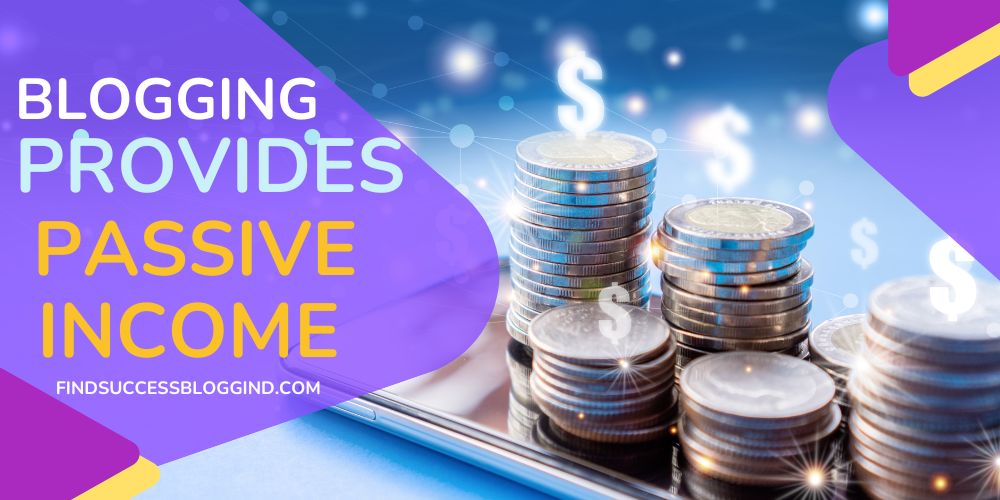Blogging for affiliate marketing is an excellent way to increase your revenues and reach a larger audience. Also, blogging boosts traffic to your website, making it an effective option to promote products and services online.
With so many blogging benefits, many businesses use it for their affiliate marketing needs. In this blog post, we’ll cover the top 10 ways blogging for affiliate marketing boosts revenues. Also, you’ll learn how to make the most of your affiliate marketing journey. Keep reading to find out more!
Table of Contents
ToggleHow Does Blogging for Affiliate Marketing Boost Revenue?
1) Blogging helps establish authority in your niche
One of the key benefits of blogging for affiliate marketing is establishing authority in your niche. By consistently publishing high-quality content on your blog, you will become a trusted source of information. Also, you will be a reliable source of insights for your target audience.

Niche authority is significant in affiliate marketing. For instance, your success depends on your ability to recommend products your audience trusts.
You can build credibility and trust with your readers by positioning yourself as an authority in your niche. As a result, your readers are likely to follow your recommendations and make purchases using your affiliate links.
Check this post and learn how to start a blog and find success blogging
But how does blogging establish authority?
First, sharing your knowledge and expertise using blog posts shows you understand your niche. Also, it shows you know more about the challenges your audience experience. Therefore, you can build a strong reputation as an influencer providing valuable resources in your industry.
Second, blogging allows you to showcase your personality and voice. Therefore, it connects with your audience more personally.
By sharing your personal experiences and opinions, you build relationships and trust with your readers. As a result, they will view you as a reliable friend, advisor, or mentor.
Finally, consistently publishing new content on your blog shows commitment to your niche and audience. Therefore, you’ll build a loyal following of readers who look to you for guidance and recommendations.
| If you want to succeed in affiliate marketing, establishing authority in your niche is essential. By leveraging the power of blogging for affiliate marketing, you will build credibility, trust, and rapport with your audience. Later, you will create an avenue of long-term success in your affiliate marketing journey. |
2) Blogging for affiliate marketing allows for more targeted content creation
One of the most significant benefits of blogging for affiliate marketing is the ability to create targeted content. With a blog, you can dive deep into specific topics and tailor your content to your audience’s interests and needs.

Writing blog posts about your brand provides valuable information and insights to your audience. Also, sharing blogs about your personal experiences and recommendations convinces people more than traditional advertising.
Read this post and learn the top 10 successful affiliate marketing tips for new bloggers
Moreover, niche-specific content attracts highly qualified leads who will probably convert into paying customers. Blogging for affiliate marketing is about building trust and providing value to your audience. So, creating targeted content is an excellent way to achieve this goal.
Besides attracting visitors, blogging for affiliate marketing improves your search engine rankings. Using targeted keywords and phrases in your blog posts boosts your chances of appearing in relevant search results.
| Overall, blogging for affiliate marketing creates high-quality and targeted content. This content resonates with your audience and increases conversions. It’s an effective way to build relationships with your audience, establish authority in your niche, and boost your revenue in the long run. |
3) Blogging provides opportunities for backlinking and cross-promotion
Blogging for affiliate marketing offers a unique advantage in building relationships with other bloggers and influencers in your niche. So, you can promote their products or services to your audience for backlinks and cross-promotion exchanges.
Backlinking is when another website links your site or blog posts to their website. It is one of the most effective ways of improving your search engine rankings and traffic to your blog.
Backlinking also involves contacting other bloggers and influencers to promote their brands. As a result, it creates a beneficial relationship where they link to your blog posts.
Cross-promotion is another way to leverage your relationships with other bloggers and influencers. Promoting each other’s brand reaches a broader audience and increases affiliate marketing revenues.
For example, you can write about health and wellness to build a relationship with a supplement company. Later, you may partner with a fitness blogger, promote each other’s products, and reach more health and fitness audiences. As a result, you can earn more commissions from your affiliate marketing efforts.
| Overall, blogging for affiliate marketing provides several opportunities for backlinking and cross-promotion. These factors can increase your online visibility, reach a wider audience, and boost your revenues. |
4) Blogging improves search engine rankings and visibility
In affiliate marketing, one of the most crucial factors is how easily your potential customers find your content. This is where blogging for affiliate marketing is beneficial. For instance, consistent blogging significantly improves your search engine rankings and visibility.

It attracts more organic traffic to your site when you publish high-quality content optimized for search engines. Also, when people search for relevant keywords or phrases related to your niche, your blog post could appear at the top of the search results.
Moreover, blogging allows you to target and use long-tail keywords. These are longer and more specific phrases with lower search volume but often easier to rank in search engines. Therefore, long-tail keywords can reach a more targeted audience likely to convert into customers.
Besides improving your search engine rankings, blogging also increases your online visibility. Producing valuable, shareable, and regular informative content attracts more social media followers. Also, the content gets more shares, likes, and comments. As a result, it leads to more brand awareness, traffic, and sales.
| Overall, blogging for affiliate marketing is a powerful tool that boosts your online presence. It also helps in reaching your target audience more effectively. So, if you’re not already blogging for affiliate marketing, now is the time to start. |
5) Blogging for affiliate marketing increases engagement with your audience
One of the significant benefits of blogging for affiliate marketing is increased audience engagement. Valuable content related to your niche attracts visitors to your blog who are genuinely interested in your topic.
A targeted audience will probably engage with your content and leave comments. Also, the audience can share your posts on social media and join your email list.
Learn how to promote your blog and get more readers
Such engagement is precious for affiliate marketers. Besides, it builds trust and establishes credibility with your audience. As readers trust your blog’s high-quality info and recommendations, they may click through your affiliate links and make purchases.
Also, blogging for affiliate marketing connects you with your audience personally. Sharing your experiences and insights about your niche can create a sense of community around your blog. This can be incredibly powerful, as people prefer trustworthy brands and bloggers.
In addition, the interactive nature of blogging increases conversations with your readers as you respond to their comments. This action increases engagement and an understanding of your audience’s needs and preferences. This knowledge can tailor your content and product recommendations to meet their needs better.
| Overall, blogging for affiliate marketing boosts engagement with your audience. High-quality content from blogging is usually relevant and helpful to your readers. It establishes trust, builds community, and increases your revenues through affiliate marketing. |
6) Blogging leads to more social media followers and shares
A robust social media presence is crucial in affiliate marketing. Blogging for affiliate marketing increases your reach and engagement on social media platforms. Sharing your blog posts on social media channels can attract new followers interested in your niche and content.

Moreover, as you publish quality content on your blog, your existing followers will more likely share your posts with their network. Therefore, your content goes viral, leading to more traffic to your website and potential sales.
Check out the top ten ways to increase your website traffic fast
Blogging for affiliate marketing also allows you to create social media-specific content. For example, you could create infographics, quote images, or short videos that promote your affiliate products and link back to your blog. These types of content perform well on social media and drive more traffic to your site.
Besides growing your social media following and shares, social media engages an audience and builds relationships. Responding to comments and messages, sharing user-generated content, and hosting social media giveaways are just a few ways to connect and receive followers.
| Overall, blogging for affiliate marketing builds social media visibility and increases your followers and shares. Ultimately, it drives more traffic and sales to your affiliate products. |
7) Blogging helps you understand your audience’s needs and preferences
Knowing your audience is one of the most crucial aspects of successful affiliate marketing. When you blog, you can better understand your audience’s needs, preferences, and problems.
For instance, when you create blog content, pay attention to your readers’ comments, questions, and feedback. As a result, you understand what they want, including their most relevant topics. You can use this knowledge to create targeted content that meets their needs and interests.
In addition, blogging for affiliate marketing builds a better relationship with your audience. With blog engagement, you can understand the challenges experienced by your audience. As a result, you can create more informative and persuasive content, leading to higher conversion rates and increased sales.
Also, you can identify their new and relevant affiliate products or services by understanding their needs and preferences. Later, you can expand your offerings and increase your revenue potential.
| Overall, blogging for affiliate marketing is an effective way to understand your audience and create targeted content for their needs. Also, building a solid relationship with your readers increases engagement, trust, and sales conversions. |
8) Blogging increases conversions and sales through product reviews and recommendations
One significant benefit of blogging is providing a perfect platform to promote products through reviews and recommendations. As a blogger, you can share your experiences and opinions about your products and build trust and credibility with your audience.
So, blogging for affiliate marketing provides detailed information about the products you promote. Also, you can highlight their features and benefits and any potential drawbacks or limitations. As a result, your audience will make informed decisions about whether a particular product is right for them.
In addition, honest thoughts and recommendations can increase conversions and sales for your affiliate products. When your audience trusts and value your opinion, they are more likely to consider your recommendations. It may include purchasing, signing up for a service, or taking another desired action.
However, it’s important to note that blogging for affiliate marketing isn’t just about pushing products and making sales. To succeed, you must provide real value to your audience and promote products you genuinely believe will benefit them.
| The process also involves establishing yourself as a trusted authority in your niche. Also, it includes providing helpful, informative content and building strong relationships with your readers. Eventually, you will enjoy long-term success with your affiliate marketing efforts. |
9) Blogging for affiliate marketing allows for creative and diverse monetization strategies
One of the best things about blogging for affiliate marketing is the endless possibilities for monetization. Whether you’re promoting products through product reviews, sponsored posts, or banners on your blog, there’s always room to be creative. Also, you can find new ways to boost your affiliate marketing earnings.
Check out other ways to monetize your blog with affiliate programs
One approach is to leverage email marketing by creating a lead magnet. The process may include offering a free ebook or course to reward visitors who subscribe to your email list. You can then promote affiliate products to your subscribers with a higher likelihood of conversions. Subscribers already interested in your niche can generate leads and sales.
Another option is to collaborate with other bloggers or businesses in your niche. You can offer sponsored posts, joint giveaways, or even sell ad space on your blog to interested parties. Also, you give your reader a digital product to improve their knowledge or skills.
Therefore, blogging with an open mind unlocks many creative and diverse monetization strategies. These strategies will boost your revenue and make your blog more profitable.
10) Blogging provides a long-term, sustainable source of passive income
Another benefit of blogging for affiliate marketing is the potential for long-term, passive income. Content that drives traffic and conversions allows bloggers to earn long-term commissions from partnership programs.

Also, blogging for affiliate marketing creates a constant revenue stream that generates income for months or years. It doesn’t require consistent maintenance like other business models.
Also, promoting evergreen products and services with a blog creates a sustainable passive income with little effort.
Of course, building a successful affiliate marketing blog requires investing some time and resources. Also, creating high-quality content to establish your online presence requires hard work.
So, with the right strategies and approach, you can build a blog that drives traffic and sales consistently. Also, the blog can provide a steady stream of passive income for years.
Building a loyal, engaged audience is the key to creating a successful passive income stream.
As your blog becomes popular and engages more readers, you’ll benefit from increased conversions and sales. With the right monetization strategies, you can earn steady affiliate commissions. The earnings also remain stable even when your traffic levels fluctuate.
| Ultimately, the benefit of blogging for affiliate marketing is getting a sustainable source of passive income. This income grows and thrives for years with little effort once you invest in initial hard work. So, commitment and perseverance in blogging generate consistent revenue. It also helps you achieve your financial goals. |
Conclusion on blogging for affiliate marketing
In conclusion, blogging for affiliate marketing is a powerful strategy. It can significantly boost your revenues and provide a sustainable source of passive income.
Creating targeted content that provides value to your audience and drives engagement attracts more traffic to your website. Also, blogging improves search engine rankings and increases your conversions and sales.
Blogging also provides opportunities for backlinking and cross-promotion. As a result, it builds a strong network and expands your reach. With creative and diverse monetization strategies, you can turn your blog into a sustainable source of passive income for years.
So, to increase your affiliate marketing revenues, starting a blog should be one of your strategic priorities. Happy blogging!
| Do you know any other ways of blogging for affiliate marketing? Kindly share them in the comment section below, or let us know your opinions about this post.
Don‘t forget to subscribe to our newsletter for updates on our latest posts. Also, if you enjoyed reading this post, share this message with your friends on Facebook, Twitter, and other social media sites. Let’s find success in blogging together. |








